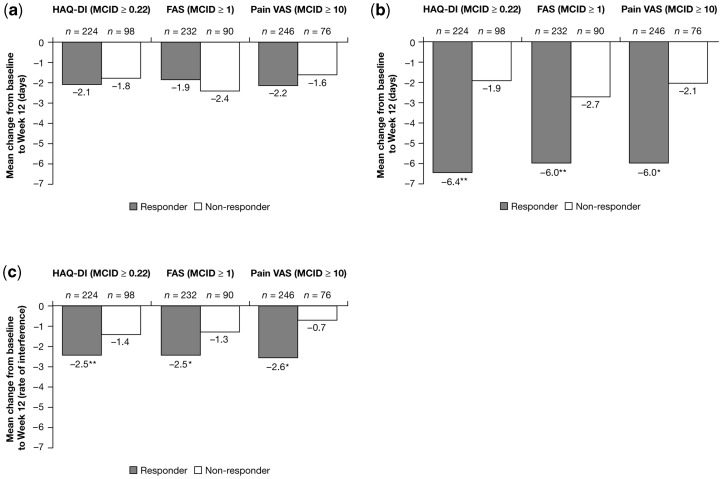Fig. 1.
Mean changes in paid work productivity from baseline to Week 12 by responder status (observed data, employed ITT population, pooled RAPID 1 and 2 CZP 200 mg + 400 mg groups). Response is defined as change from baseline to Week 12 ≥MCID (in absolute value), non-response is defined as mean change from baseline to Week 12 <MCID. Recall period for absenteeism (work days missed) is 1 month; recall period for presenteeism (work days with productivity reduced by ≥50%, not including work days missed) is 1 month; range for productivity interference is 0–10, where 0 indicates no interference and 10 indicates complete interference. (a) Reduction in absenteeism (work days missed) due to arthritis. (b) Decrease in presenteeism (days with productivity at paid work reduced by ≥50%) due to RA. *P≤0.001 vs non-responders; **P≤0.01 vs non-responders. (c) Reduction in the rate of RA interference with productivity at paid work. *P≤0.001 vs non-responders; **P≤0.01 vs non-responders; rate of interference 0–10 scale: 0 indicates no interference and 10 indicates complete interference.

